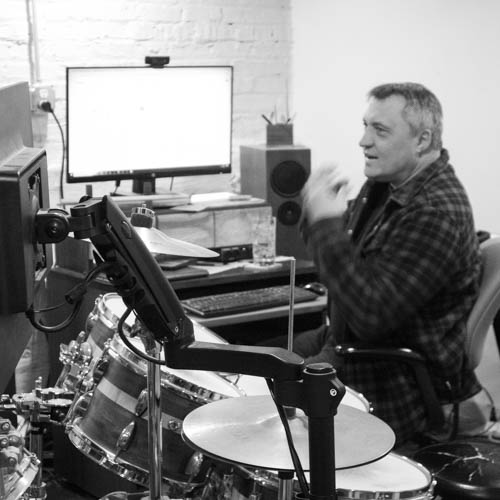I talk with other drum and piano teachers regularly and I am always surprised that their experience of being a private music teacher is so different than mine. Their grief runs like a laundry list of what we all imagine are the typical obstacles of doing that job.
I’ll give you a few of them: the student who doesn’t practice. The parent who interferes during the lesson. Tension of different kind between the teacher and the student. The people who quit abruptly. The ones who don’t pay and quit. The ones that want to come once every three months and keep a spot open just for them. The ones that don’t respect your policy or policies. The one that want to spend the whole lesson time talking about anything but music.
All of these problem seem to stem from the same disease: the music teacher is not respected. Yes, that’s a problem.
I would admit at this point that I am extremely lucky because I deal with a full load of students and every single one of them is great. I mean it. They do not treat me anything like I just mentioned. They practice. They all practice! If they are adults and they don’t because they’ve had a busy week, that’s ok in my book. What I do is to go through the exercises and hopefully, they will get a few new ones. They always do, by the way. I designed their assignment page that way.
Parent(s) who interfere? I don’t have any of those. And parents are always present in the studio, witnessing every interaction between their kids and I. I want it like that, I even throw jokes their way, we have a good time. The parents are my best allies in developing music for their child. They are the ones who pay for the lesson and they can help their little one practice during the week. I love all the parents I interact with.
Let’s talk about tension in the studio. This one is very simple: no tension. None whatsoever. That’s not negotiable. If I feel recurring tension(s) I will put the kibosh on it. I will invite the student to find another teacher. That happens very very rarely, though. It is my job to make it easy for the pupil to be in my company. I prefer someone who doesn’t practice much and comes to the lesson with a smile rather than someone who does every assignment but comes for a fight. I am not here to fight. I am here to share the joy of music. I am here because YouTube doesn’t cut it. I am here because I am more organic than the internet, and less boring too.
I could keep going down the list of the griefs, but it’s going to get really annoying quickly, besides, who got that kind of time? I’ll talk briefly about students or parents that don’t respect my policies. Well, I don’t have any of those! I tell every one my policies during the first lesson (I’ve got only two: I need 48 hours minimum for cancellation and students need to pay at the beginning of the month in full). I don’t make them sign anything. I tell them orally what the policies are. I ask if they agree to it and that’s it. It’s based on the honor system. After that, I don’t like to talk about my policies. They are what they are. Anyone who questions them isn’t honorable in my book. That’s where I want to part. That happens, believe or not, almost never.
All right, all right, I’ll cover a fun one. But that’s the last one. I’ve got to go soon. Let’s talk about the student who want to talk during the whole lesson. How do I handle that? First off, yes, that does happen. In my book, it’s ok, it really is. I am not here to control everything the student will get from the lesson. I am paid to help the student. It could be by going through a double paradiddle or a Chopin Prelude as well as whatever they have in mind. The reason they want to talk doesn’t belong to me, it belongs to them. Especially if they are adults. They had to drag themselves to the studio, they had to pay for the time, they had to bring their books or their sticks. They know better than me how they want to spend the time with a music teacher. I go with this philosophy: I am a music teacher, but music is about life, and sometimes life takes over a student’s mind. I can understand that. Again, that’s something YouTube or online group lessons cannot cover. Heck, that’s something that’s not even covered in most music classes at schools. The last thing I would say about students who talk is that I always take it as an honor that they invite me into their lives. It fleshes them out for me too, they stop being just a drum or a piano students to become real people with their pains and joys.

